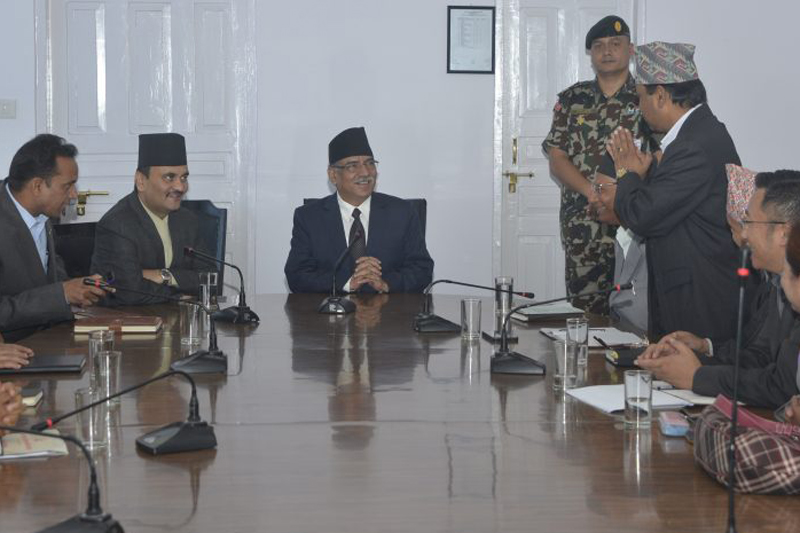CIEDP handicapped as legally there’s very little it can do
Kathmandu, March 25
The Commission of Investigation on Enforced Disappeared Persons is entering crucial phase of investigation, but the government has not yet criminalised torture.
The CIEDP will collect ante-mortem data of enforced disappearances and carry out excavation of suspected sites in a few weeks. However, the government has not enacted a law criminalising enforced disappearance, said CIEDP handicapped member Bishnu Pathak, who is also the commission’s spokesperson. Pathak said the CIEDP had sent a draft bill to the government recommending criminalisation of enforced disappearance, where victims were forcibly disappeared for one month or more, but the bill is yet to be enacted into law.
“We thought we would have to look into cases wherein people were forcibly taken away and their whereabouts were unknown till date, but some victims, who were taken away and released after a few months came to us saying their cases too should be investigated by the commission,” Pathak said.
The CIEDP also wants to investigate other crimes committed against victims of enforced disappearance. “We should also have power to investigate those cases where a victim of enforced disappearance was tortured or other forms of crimes were committed against them. The existing law is, however, silent on this matter,” Pathak added.
The CIEDP wanted powers to seize the passports of suspected perpetrators and arrest them if necessary, but the government removed those provisions from the draft of the CIEDP regulation.
Pathak said the government wanted to delay everything related to transitional justice and that was why it did not enact the required laws and also did not provide the needed resources to the CIEDP. “The government wants to delay everything with the purpose of erasing evidence,” he said, adding that the CIEDP was focusing more on ante-mortem data so that the guilty could be punished even after 30 or 40 years, as happened in Bangladesh.
Government yet to enact law criminalising enforced disappearance andtorture
Former attorney general Hari Phuyal said if torture was not criminalised, CIEDP’s efforts would be useless.
Sushil Kumar Shrestha, chair of Social Justice and Human Rights Committee of the Parliament said the panel was concerned about non-compliance with its directives and hence it was thinking of preparing a report and sending it to the Parliament for debate. Shrestha said the panel issued directives to the concerned government agencies to enact necessary laws relating to transitional justice and arm the two transitional justice mechanisms with resources, yet the government agencies did not comply with the parliamentary panel’s directives.
SJHRC is holding discussion with government officials and office bearers of CIEDP tomorrow.
Chair of Society of Families of Persons Disappeared by the State Rupesh Sah said he had lost hope that the CIEDP would ensure justice for conflict victims. “The maximum the CIEDP can do is prepare a report, but I doubt it will ever be implemented,” he said.
Minister of Law, Justice and Parliamentary Affairs Ajay Shankar Nayak said forging consensus with stakeholders on criminalisation of enforced disappearance took time, but he would make efforts to register a bill to criminalise torture within two weeks.
The anti-torture bill is also being considered in the Parliament.
The CIEDP has received 2,825 complaints of enforced disappearance, almost double the government’s official record. The extended deadline for lodging complaints with the CIEDP ends on March 28. In this period, 50 people took the complaint forms and 13 lodged complaints.






